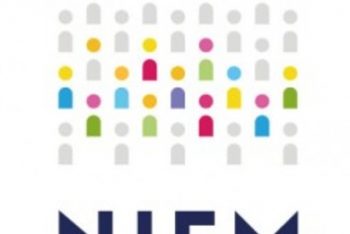This report focuses on the implementation of integration policy aimed at the beneficiaries of international protection (hereafter BIPs) in Latvia. It is a result of evaluation of migration policies in the EU Member States conducted as part of the project “The National Integration Evaluation Mechanism (NIEM).”
NIEM Evaluation 2: Latvian integration system 2019 – 2021: Stagnation before positive change? can be downloaded here.
In April 2022, the 2nd Migration and Integration Mechanism Evaluation under the NIEM (National Integration Evaluation Mechanism) project was concluded. The main conclusion: no significant changes were made to the legal and policy framework for the integration of beneficiaries of international protection between 2019 and spring 2021.
Later, after the end of the evaluation period, changes were made to establish a national coordinating body for the socio-economic inclusion of beneficiaries of international protection. This eliminated disparities in social support for persons with different international protection status and facilitated access to social support.
Some of these changes have been in preparation for a long time, others have been made in response to problems highlighted by the Covid-19 crisis, such as the lack of access to information for beneficiaries of international protection. The lack of access to housing for this group was also a major problem during the evaluation period, as was employment, with the number of unemployed doubling since the pandemic began. When various support measures and services went online, access to them became more difficult. Education has also been a problem due to lack of technological support.
What is NIEM?
NIEM is a six-year long transnational project aiming to support the key actors in the field of integration in 14 EU Member States in developing their systems of integration and improving the integration outcomes for persons with international protection.
The main goal of the project is to increase the competence and effectiveness of the institutions involved in the BIP integration. NIEM has established a tool for comprehensive monitoring and evaluation of the integration process. It helps to identify gaps within the legal and policy frameworks of integration and to assess the impact of legislative and policy changes in different countries, as well as to recognise the good practices in different integration systems. NIEM proposes to establish a mechanism for a biennial, comprehensive assessment of BIP integration.
The project is based on the assumption that creation of any migration and integration policy should rely on trustworthy data: statistical, legal, administrative, financial and public policy data, as well as on the quantitative and qualitative data gained through surveys, interviews, and focus group discussions with the representatives of target group and the implementers of integration policy. Thus, the aim of this project is to promote evidence-based policy-making. NIEM provides evidence that can serve as a basis for further development of appropriate integration policies in the EU countries.
This report is the outcome of the last of three evaluation rounds, following the NIEM comparative Baseline Report and respective national reports based on data from 2016–2017, and the NIEM comparative Evaluation 1 Report and respective national reports in 2020,4 based on data obtained in 2017–2019.
This report is addressed to public administration professionals and decision makers, representatives of academic and applied research centres, think tanks, non-governmental organizations, and to everyone else interested in or dealing with migration and integration issues. We hope that the report will arise interest and provide a good basis for enlarging knowledge, continuing discussions and creating a better policy for integration.

